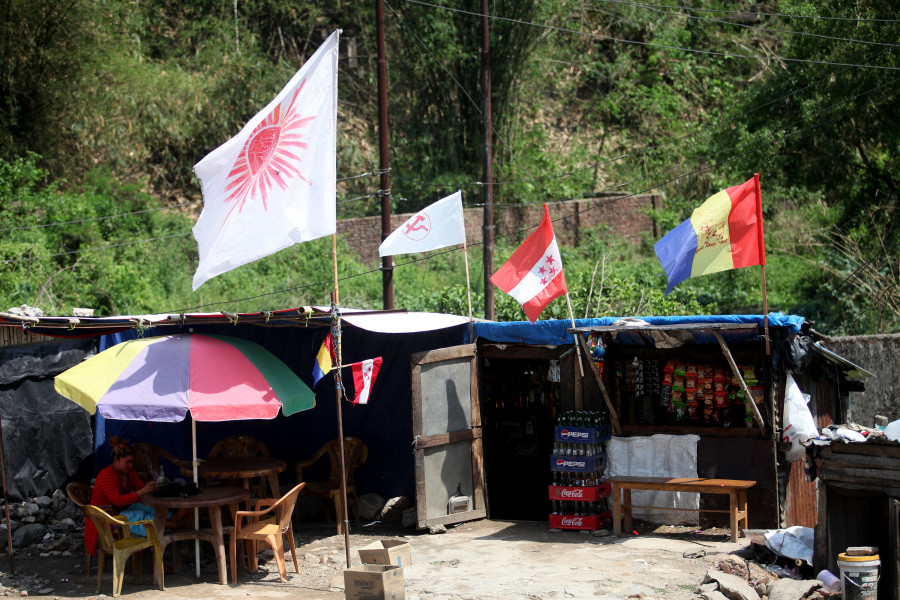Editorial
Act on your words
Big parties have committed to fighting elections on their own strength. There is room for doubt.
The two biggest parties of the country, which are also in a ruling coalition, have committed to fighting upcoming elections on their own. In fact, the CPN (Maoist Centre), the main opposition, has made the same commitment. This is great news. It is about time the real strength of these parties was tested. Yet there is room to doubt their public stand. Nepal’s current electoral system makes it impossible for any one party to get an absolute majority and there is no alternative to forging an alliance to run the country. So the political parties are tempted to strike pre-election alliances. The Nepali parties are not confident of their popularity: The established ones can no longer count on their traditional vote-banks; nor are the newer outfits assured of their own vote-mobilisation skills. Thus whatever political parties big and small say now, they are likely to seek pre-election alliances for the 2027 vote.
Perhaps by design, the commitments of the big parties are also not unanimous. The just-concluded Nepali Congress central working committee passed a resolution to “stand on our own in upcoming elections and ensure that our electorate gets to cast their vote for ‘tree’ [the Congress election symbol].” Yet leaders of the establishment faction under Sher Bahadur Deuba insist that the resolution does not rule out pre-poll alliances. They say such ‘strategic issues’ cannot be settled years ahead of elections. On Tuesday, UML chair KP Sharma Oli also clarified that even though his party is currently in an alliance with the Congress, the UML would fight the next elections on its own. Yet many party leaders are not convinced. The current alliance with the Congress, which could continue till election-time, will make it difficult for the UML to mount a strong attack against its main electoral competitor. Their electoral pitch already muddled, what will be the harm in having an electoral alliance, some UML leaders are asking?
The bitter 2021 UML-Maoist Centre divorce aside, there is still a sizable constituency in the UML in favour of a broad left alliance (culminating in an eventual left unity). This constituency is sure to clamour for a communist alliance ahead of the next polls. The Maoist Centre, which has already been reduced to a rump of a political force that had emerged in the 2008 Constituent Assembly election, will also be desperate for a pre-poll alliance just to ensure its existence. The problem, again, is this lopsided calculation of political parties, which reduces electoral contests to a pure numbers game. Ideology and vision are at the heart of competitive politics and without them no political party can stay relevant for long. Pre-poll alliances confuse the electorate about individual parties’ guiding principles and beliefs.
Just because pre-poll alliances are convenient for political parties does not make them right. If Nepali political parties were committed to democratic values and if they had a long-term vision, they would not be afraid to play a constructive role in governance and service delivery from the opposition’s bench. Yet as Pushpa Kamal Dahal’s restlessness in the opposition no sooner than he was ousted as prime minister, shows, for Nepali top leaders, getting to power and staying there is everything. Not for them the ground-up task of building the party organisation and steadily gaining public legitimacy and recognition based on their own ideals and values.




 18.12°C Kathmandu
18.12°C Kathmandu














